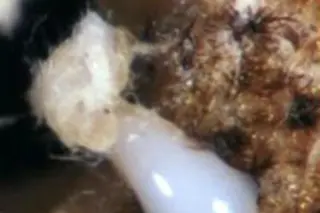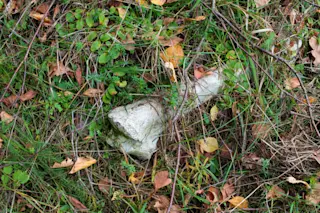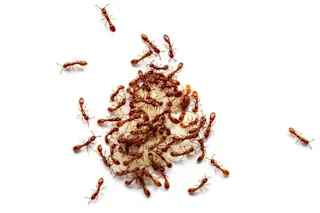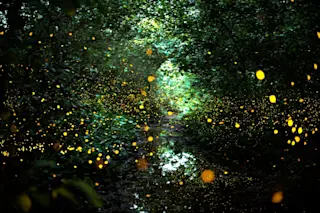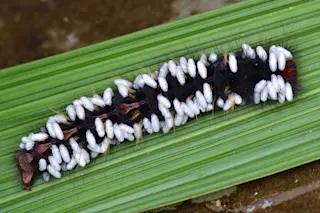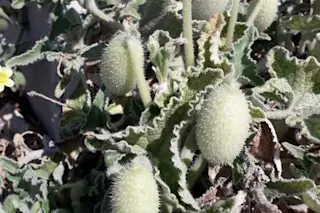If aphids could recite Shakespeare, they might favor this rousing cry: "Once more unto the breach, dear friends, once more; or close the wall up with our [aphid] dead." Researchers have discovered that the social insects send soldiers to repair holes in the plant tissue where they make their homes, and that some of the soldiers never return from these "suicide missions." Some aphids cause their plant hosts to form hollow swellings called galls within which the larvae mature. A hole in the gall's wall threatens the larvae's cozy and protected home, and causes soldier aphids to rush to the spot. There they excrete body fluids that represent about two-thirds of their body mass, and mix the fluids with their legs to form a scab that patches the hole.
Many of the soldier aphids, of the species Nipponaphis monzeni, die from the significant loss of body mass. Many others get ...


